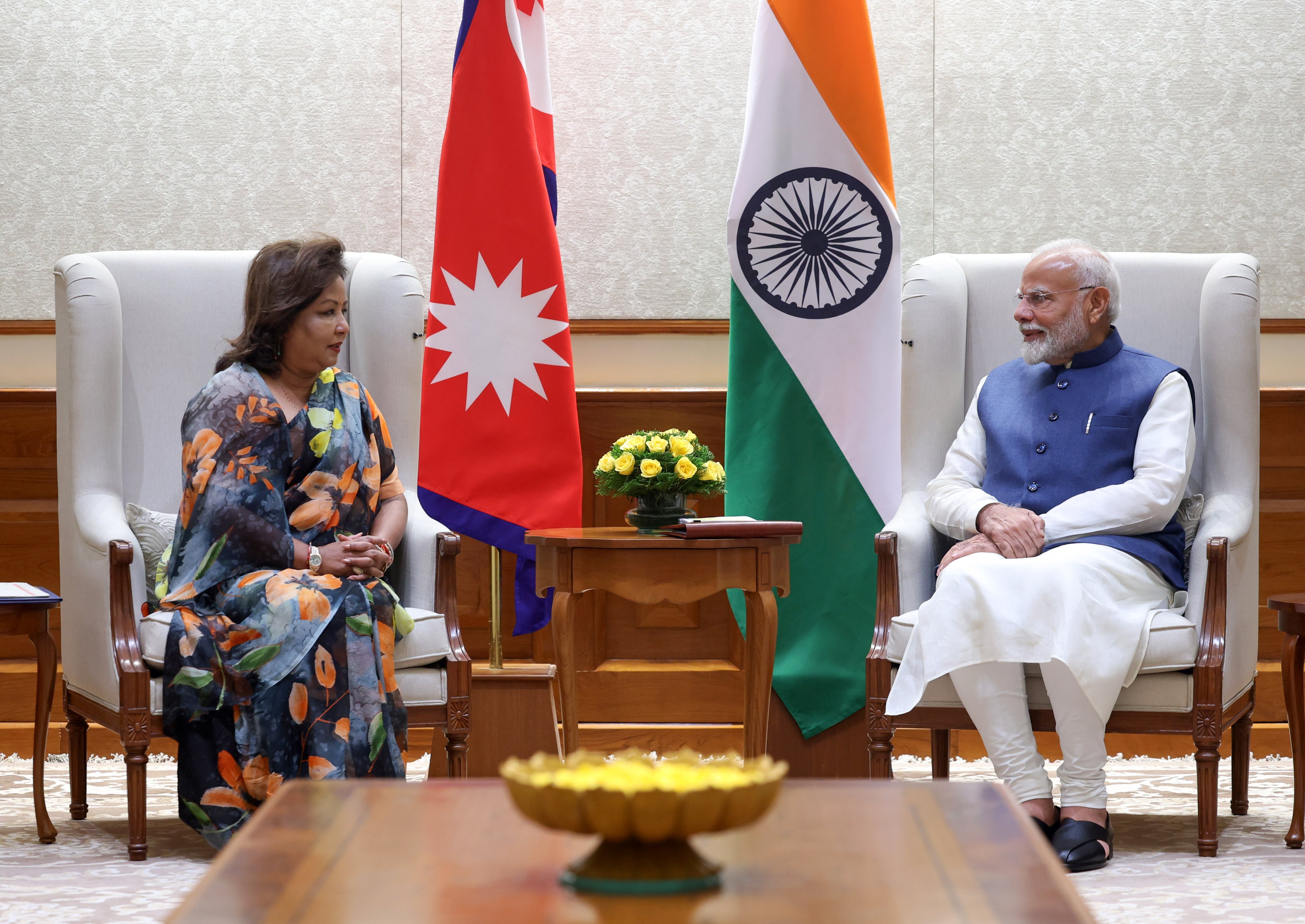Behind the Scenes: How Arzu Rana Deuba Could Become Nepal's First Female Prime Minister!

According to the power-sharing agreement between the Nepali Congress and the CPN-UML, Prime Minister KP Sharma Oli is expected to hand over power to the Nepali Congress in about 22 months. If the alliance between these parties remains stable, Sher Bahadur Deuba, the Congress President, is likely to become Prime Minister for the sixth time. Considering that the leader of the parliamentary party typically assumes the role of Prime Minister and the internal dynamics within the Congress, Deuba appears to be the most viable option. However, Prime Minister Oli's recent comment about appointing a female Prime Minister has sparked significant discussion in the political arena.
Oli publicly stated, "I want to appoint a female Prime Minister, but it will require some preparation. It might take one or two years." This has led to speculation about whether the country could see its first female Prime Minister during this parliamentary term and who Oli might have in mind.
If the Congress-UML alliance continues as agreed, Oli is likely to remain Prime Minister until Ashar 2083 BS. Yet, his statement about wanting to appoint a female Prime Minister within the next couple of years has opened the possibility of a female leader from UML taking up the role. However, no female leader with the required stature is currently visible within UML ranks. Vice President Ashtalaxmi Shakya isn't an MP, and some speculate that Oli might be considering former President Bidhya Devi Bhandari, but she also isn't an MP, and the Constitution mandates that a Prime Minister must be a member of the House of Representatives.
In light of this, who might Oli have in mind for the role of the female Prime Minister? Insiders suggest that it could be the current Foreign Minister, Dr. Arzu Rana Deuba. It's rumored that Deuba is preparing to make his wife, Arzu, the first female Prime Minister, even if it contradicts the astrologer's prediction that he would serve as Prime Minister seven times. Both national and international circumstances seem favorable for this possibility.
Notably, Arzu returned from a visit to Delhi just days before Oli's announcement. The South Block, which did not formally invite the Prime Minister, treated her with the same respect as a Prime Minister. This five-day visit to Delhi and the attention given to the Foreign Minister have sparked widespread discussion in Nepal. Many believe that Oli's mention of a "female Prime Minister" was a strategic move to reassure the Deuba camp and counter any challenge to his power.
Arzu is not just any Foreign Minister; she is also the wife of Congress President Deuba, a key player in the power-sharing alliance. She played a crucial role in forming this alliance, reportedly with inspiration from Western powers. Arzu was involved in nearly all discussions leading up to the Congress-UML power-sharing agreement on Ashar 17. In a decisive meeting at Oli's residence in Balkot on Ashar 15, only the Deuba couple represented the Congress side, with no other top Congress leaders present. This suggests that the agreement on Ashar 17 was more of a deal between two families than two political parties, as per UML leaders loyal to Bidhya Bhandari.
Meanwhile, Congress's internal dynamics are becoming increasingly favorable for Arzu. In 2070 BS, following a strategy of gradually establishing acceptability rather than forcing it, Arzu entered Parliament for the first time as a proportional MP but lost in 2074 BS. She was then included in the proportional list again in 2079 BS. She had aspired to become Foreign Minister during the previous government, but Deuba did not support her then. However, the current environment allowed discussions on ministerial appointments in the Congress-UML alliance to begin with questions about who would be satisfied with the roles, particularly concerning Arzu and Ramesh Lekhak.
On the other hand, Deuba, mindful of potential party disputes due to his wife's involvement, ensured that ministerial positions were allocated to the opposition faction within the party, meeting their demands. Of the 10 ministerial positions Congress received, Ajay Chaurasia, Pradeep Paudel, Badri Pandey, and Ramnath Adhikari were from the opposing faction. Tejulal Chaudhary was appointed under the President's quota, and Deepak Khadka was appointed on behalf of BP Koirala's son, Sashank Koirala. Deuba's strategic move was successful, and Arzu's acceptability is now nearly established.
The plan to make Arzu the Prime Minister is also linked to the upcoming Congress general convention. Deuba's strategy is to hold the convention while either he or his wife is Prime Minister, thereby securing the election of a favorable candidate as party President. To create a conducive environment for this, Deuba intends to assume a guardian role and transition leadership. However, for Arzu to become Prime Minister, the opposing faction within Congress would need to be willing.
Although the political scenario seems promising, constitutional and ethical concerns might arise if Arzu becomes Prime Minister. The Constitution does not prohibit an MP elected through any electoral system from becoming Prime Minister. However, in a democratic system, it is generally expected that the head of the executive should be directly elected by the people. Arzu is not a directly elected MP. Aside from Girija Prasad Koirala, who was a proportional MP in the first Constituent Assembly election of 2064 BS, Nepal has no precedent of a proportional MP becoming Prime Minister. In neighboring India, Dr. Manmohan Singh served as Prime Minister for two terms as a member of the upper house, despite having contested and lost elections only once in 1999. He then remained Prime Minister for 10 years as a Rajya Sabha member.

![From Kathmandu to the World: How Excel Students Are Winning Big [Admission Open]](https://nepalaaja.com/index.php/img/70194/medium/excel-college-info-eng-nep-2342.jpg)
